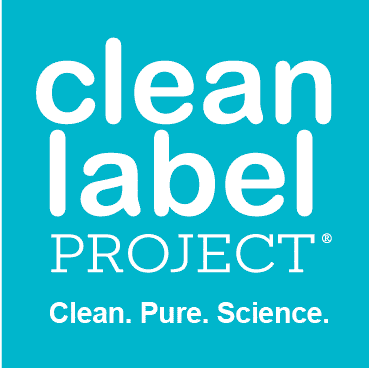New Study of Protein Powders from Clean Label Project Finds Elevated Levels of Heavy Metals and BPA in 53 Leading Brands
The new independent study shows lead, BPA, mercury, cadmium and arsenic are present in top-selling nutritional protein powder supplement products. More than 75% of plant-based protein powders had measurable levels of lead, while one contained more than 25 times the allowed regulatory limit of BPA in just one serving.
Denver, CO – February 27, 2018 – Put down that smoothie! A new independent study released today by the Clean Label Project™, a national nonprofit focused on health and transparency in labeling, shows that many nutritional protein powder supplements contain heavy metals and BPA. Contaminants found included high levels of lead, BPA, mercury, cadmium and arsenic – substances which have been linked to multiple cancers, reproductive harm and brain damage. The nonprofit selected and purchased off the store shelf or online 134 of the top selling protein powder products according to Nielsen, the Amazon.com best seller list, and fitness blog consumer favorites.
An independent lab then tested each protein powder for industrial and environmental contaminants. The worst offenders were the plant-based protein powders, which lab testing revealed the following:
- Approximately 75% had measurable levels of lead. The laboratory discovered that the plant-based protein powders each contained on average twice the amount of lead per serving of other products.
- In addition to lead, the plant-based protein powders contained mercury, cadmium and arsenic, in several cases above health-based guidelines.
- 55% of protein powders tested had measurable levels of BPA, a known endocrine disruptor.
- Certified organic products averaged twice as much heavy metals.
“It’s horrifying to think people who are trying to eat healthier by incorporating a nutritional protein powder supplement into their diet may actually be ingesting lead and BPA,” said Jackie Bowen, MPH, MS, Clean Label Project executive director. “While the study revealed plenty of clean protein powder options, this study clearly showed a significant quality variation among top-selling products.”
“Plant-based protein powders have higher levels of heavy metals than non-plant-based protein powders,” said Sean Callan, PhD, director of operations and quality at Ellipse Analytics, the third-party analytical chemistry laboratory that performed the testing. “This could be due to the locations where the protein powder manufacturers’ plant ingredients are sourced having contaminated soil. This is especially true in the United States where there may be a higher incidence of heavy metals in the soil of some regions.”
Testing further revealed that approximately 10% of whey-based protein powders contained lead levels above health guidelines. However, none of the egg-based protein powders contained lead. The study also found that 28 out of 134 of the protein powders contained twice the regulatory limit (3 micrograms) of BPA and one product had 79.9 micrograms of BPA – in just one serving. Other protein powders tested completely free of BPA.
The study data was analyzed by Clean Label Project’s Technical Advisory Board of statisticians, epidemiologists, food safety scientists and registered dieticians before being published. The study results are available now to the public and media on CleanLabelProject.org. Study results on the nonprofit’s website are presented in a 5-star rating system that names each product tested and shows how contaminated it is compared to other products in the same study. The study is in the process of being peer-reviewed.
Visit http://www.cleanlabelproject.org/protein-powder/ for more detailed information about this study.
About Clean Label Project
Denver-based Clean Label Project is a nonprofit organization dedicated to educating the public about the toxins and nutritional value in consumer products through its studies conducted by independent third-party laboratories. By sharing the results of scientific data directly with consumers, the organization seeks to assist the public in making the most informed choice possible each time they shop. The Clean Label Project believes consumers have a right to know what kinds of contaminants it tests for in consumer goods and the potential effects of toxins on health. Education is its core initiative and more can be learned by visiting cleanlabelproject.org. Clean Label Project. Clean. Pure. Science.®
